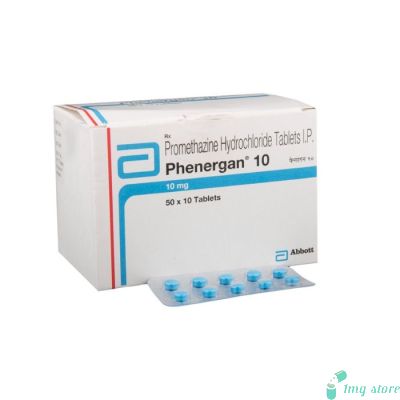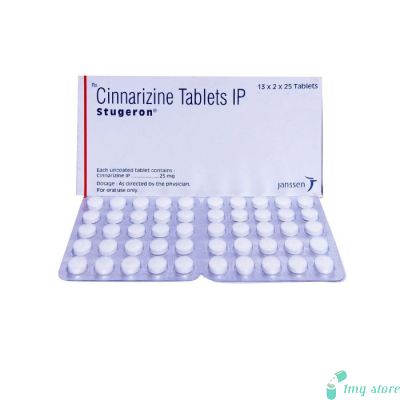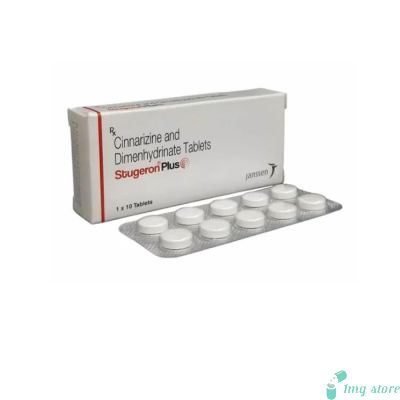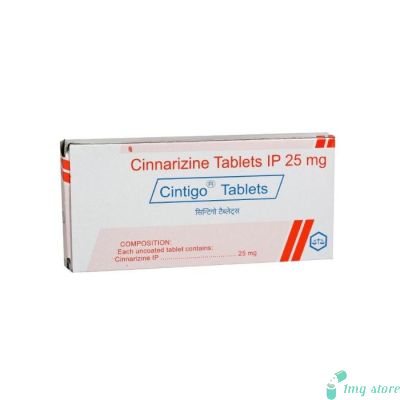Granicip DT Tablet (Granisetron)
Granisetron Tablet is a pharmaceutical formulation of Granisetron, an active ingredient recognized for its antiemetic properties. Granisetron Tablets are available under various brand names, such as Granicip DT and Kytril
Granicip DT Tablet (Granisetron) OR Kytril
Granisetron Tablet, commonly marketed under brand names like Granicip DT and Kytril, is a medication used to manage and prevent Nausea and Vomiting caused by chemotherapy or radiation therapy, among other uses. This medication falls under the category of antiemetics, specifically 5-HT3 receptor antagonists, which work by blocking certain natural substances that trigger nausea and vomiting. In this extensive guide, we will delve into various aspects of Granisetron Tablets, including dosage information, potential side effects, precautions, drug interactions, and more, to help you understand this medication better and ensure safe and effective use.
Granisetron Tablet Forms:
Granisetron tablets come in various forms to suit your medical needs. Whether you prefer conventional tablets or other formulations like dissolvable or extended-release tablets, there's a Granisetron option for you.
What is a Granisetron Tablet?
Granisetron Tablet is a pharmaceutical formulation of Granisetron, an active ingredient recognized for its antiemetic properties. This medication is primarily used to prevent and control nausea and vomiting induced by chemotherapy and radiation therapy in cancer patients. It belongs to the class of drugs known as 5-HT3 receptor antagonists, which function by blocking the action of serotonin, a neurotransmitter involved in triggering vomiting reflexes.
Granisetron Tablets are available under various brand names, such as Granicip DT and Kytril, and are prescribed by healthcare professionals to enhance the quality of life for individuals undergoing cancer treatments or other medical procedures that may induce nausea and vomiting.
Granisetron Dosage Information
Proper Dosage of Granisetron Tablet
- The appropriate dosage of Granisetron Tablet can vary depending on several factors, including the patient's age, medical condition, and the specific treatment regimen they are undergoing. Generally, Granisetron Tablets are available in strengths of 1 mg and 2 mg, and the typically recommended dosages are as follows:
- For adults receiving chemotherapy or radiation therapy: The usual starting dose is 2 mg, taken orally once a day, either 1 hour before chemotherapy or radiation or as prescribed by the healthcare provider.
- For pediatric patients (age 2 to 16) receiving chemotherapy: The recommended dose is based on body weight, typically 10 mcg/kg, taken orally once a day, 1 hour before chemotherapy.
- It is crucial to strictly follow the dosage instructions provided by your healthcare provider or the medication label. Deviating from the prescribed dosage may result in inadequate control of nausea and vomiting or an increased risk of side effects.
Granisetron Tablet Brands:
Explore a range of trusted Granisetron tablet brands that offer effective relief from nausea and vomiting. Different brands may offer unique formulations and options, so you can find the one that works best for you.
Buy Granisetron Tablet Online:
For convenience and accessibility, you can purchase Granisetron tablets online through our website, 1mgstore.com. Enjoy the ease of ordering from the comfort of your home and have your medication delivered right to your doorstep.
Granisetron Tablet Auto-Refill:
Never run out of your essential medication. Consider setting up an auto-refill option for your Granisetron tablets to ensure you always have them on hand when you need them. It's a hassle-free way to manage your medication supply.
Before starting Granisetron Tablet treatment, it is crucial to be aware of certain precautions to ensure safe and effective use:
- Allergies: Inform your healthcare provider of any allergies you may have, especially if you have a history of allergies to medications, including 5-HT3 receptor antagonists like ondansetron or dolasetron.
- Pregnancy and Breastfeeding: If you are pregnant, planning to become pregnant, or breastfeeding, discuss the risks and benefits of Granisetron Tablet/Kytril with your healthcare provider. The use of this medication during pregnancy and lactation should be carefully considered.
- Liver or Kidney Conditions: Individuals with pre-existing liver or kidney problems may require dosage adjustments or special monitoring while taking the Granisetron Tablet. Inform your healthcare provider of any such conditions.
- Electrolyte Imbalance: Granisetron Tablet can lead to electrolyte imbalances in some patients. If you experience symptoms like weakness, muscle cramps, irregular heartbeat, or excessive thirst, notify your doctor.
- Other Medications: Provide a comprehensive list of all medications, supplements, and herbal products you are currently taking to your healthcare provider. Some drugs may interact with Granisetron Tablet, potentially affecting its effectiveness or increasing the risk of side effects.
Highlighting important functions of Granisetron Tablet/Kytril
Granisetron Tablet has several medical applications beyond its primary role in preventing chemotherapy-induced nausea and vomiting. Some of the key uses of Granisetron Tablet include:
- Cancer Treatment: Granisetron Tablet is widely employed in cancer patients undergoing chemotherapy or radiation therapy to alleviate the distressing side effects of nausea and vomiting, thereby enhancing treatment adherence and overall well-being.
- Postoperative Nausea and Vomiting: In some cases, Granisetron Tablet may be prescribed to prevent nausea and vomiting following surgical procedures, particularly in patients at high risk for postoperative emesis.
- Gastrointestinal Health: This medication can be utilized to manage gastrointestinal symptoms and discomfort associated with various medical conditions, such as irritable bowel syndrome and gastroenteritis.
- Pediatric Care: Granisetron Tablet is sometimes administered to children as part of their treatment plans, under the guidance of a healthcare professional, to minimize the adverse effects of chemotherapy or radiation.
- Off-Label Uses: In certain situations, healthcare providers may prescribe Granisetron Tablet for conditions not explicitly approved by regulatory agencies, based on their clinical judgment and assessment of the patient's needs.
Crucial Side Effects to Be Observed When Using Granicip DT Tablet (Granisetron)
As with any medication, Granisetron Tablet may cause side effects in some individuals. While not everyone will experience these side effects, it is essential to be aware of them. If any of the following side effects persist or worsen, contact your healthcare provider promptly:
- Headache: Mild to moderate headaches are a common side effect of Granisetron Tablet use. If severe or persistent, consult your doctor for guidance.
- Constipation: Some individuals may experience constipation while taking this medication. Maintaining proper hydration and dietary fiber intake can help alleviate this symptom.
- Fatigue: Granisetron tablets may lead to increased fatigue or drowsiness in certain patients. Avoid activities that require mental alertness until you know how the medication affects you.
- Diarrhea: Diarrhea is an infrequent side effect but should be reported to your healthcare provider if it occurs.
- Allergic Reactions: In rare cases, allergic reactions such as rash, itching, swelling, severe dizziness, or difficulty breathing may occur. Seek immediate medical attention if you experience any of these symptoms.
It's essential to note that your healthcare provider has prescribed this medication because they have determined that the benefits outweigh the risks of potential side effects. Most people using Granisetron Tablet do not experience serious side effects.
Answers to Common Inquiries About Granicip DT Tablet (Granisetron)
Can I take a Granisetron Tablet for motion sickness?
No, the Granisetron Tablet is not indicated for motion sickness. It is primarily used to prevent nausea and vomiting associated with chemotherapy, radiation therapy, and certain medical conditions.
Are there any dietary restrictions while using the Granisetron Tablet?
There are no specific dietary restrictions, but maintaining a balanced diet and proper hydration can help manage potential side effects like constipation.
Is Granisetron Tablet suitable for children under the age of 2?
Granisetron Tablet is generally not recommended for children under 2 years old. Consult a pediatrician for appropriate antiemetic options.
Can I consume alcohol while taking the Granisetron Tablet?
It's advisable to limit alcohol consumption while using Granisetron Tablet, as alcohol can increase the risk of certain side effects like drowsiness.
What should I do if I experience severe headaches while on the Granisetron Tablet?
If you encounter severe or persistent headaches, contact your healthcare provider. They can assess whether the medication is causing the symptoms and recommend appropriate management.
Combining different drugs with Granicip DT Tablet (Granisetron) can lead to Adverse Effects
Granisetron Tablets may interact with various medications and substances, potentially altering their effects or causing adverse reactions. It is essential to be aware of potential drug interactions and inform your healthcare provider of all medications you are taking. Here are five important points to consider regarding drug interactions with Granisetron Tablet:
- Serotonergic Medications: Combining Granisetron TabletKytril with other serotonergic drugs, such as selective serotonin reuptake inhibitors (SSRIs) or serotonin-norepinephrine reuptake inhibitors (SNRIs), can increase the risk of serotonin syndrome, a potentially life-threatening condition characterized by agitation, hallucinations, rapid heartbeat, and elevated body temperature.
- Apomorphine: The concomitant use of Granisetron Tablet with apomorphine, a medication used to treat Parkinson's disease, may result in severe low blood pressure (hypotension) and loss of consciousness.
- Antiarrhythmics: Certain antiarrhythmic medications, such as amiodarone, can interact with Granisetron Tablet, potentially leading to irregular heart rhythms. Your healthcare provider will monitor you closely if you need to take both medications.
- Other Antiemetics: Combining Granisetron Tablet with other antiemetics, particularly those that target the same receptors (e.g., ondansetron), should be done cautiously, as it may increase the risk of adverse effects without providing additional benefits.
- Antiemetic Herbal Products: Some herbal products and supplements marketed for their antiemetic properties may interact with Granisetron Tablet, either intensifying or diminishing its effects. Discuss the use of such products with your healthcare provider before starting Granisetron Tablet treatment.
| Manufacturer | : | Cipla Pharma, India |
| Equivalent Brand | : | Kytril |
| Generic Search | : | Granisetron |















